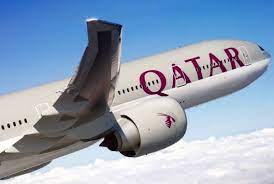Nigeria on $700m leads in foreign airlines’ blocked funds, paying off only 10%
By Jeph Ajobaju, Chief Copy Editor
Africa owes foreign airlines $1.68 billion out of the total $2.36 billion global total as of September, and Nigeria alone accounts for about $700 million of the African debt, according to International Air Transport Association (IATA) figures.
IATA Regional Vice President for Africa and the Middle East, Kamil Alawadhi, disclosed at the African Airlines Association (AAA) 55th Annual General Assembly in Uganda the impact of this financial burden is devastating for connectivity.
It also raises concerns about the sustainability of the aviation sector, he said.
Alawadhi stressed the efforts IATA to deliver value to its members in navigating the challenging landscape.
Nigeria has paid up only 10 per cent of total $783 million foreign airlines’ trapped funds since the Central Bank of Nigeria (CBN) initiated steps earlier this year to clear forex exchange (forex) backlog.
“Since 2018, a significant amount of blocked funds have been repatriated from Angola, Ethiopia, Ghana, Nigeria, and Zimbabwe through working with the respective governments. Currently, $1.68 billion in airline funds remain blocked across the continent,” Alawadhi disclosed.
“As of September, $1.68 billion of airlines’ funds are blocked across Africa out of $2.36 billion globally. The numbers are alarming and the impact of this on connectivity is devastating.”
__________________________________________________________________
Related articles:
Despite Villa propaganda, foreign airlines still owed more than $700m
Restricted operations cost local airlines N4b yearly
Domestic airlines adjust for more flight seats to raise revenue
__________________________________________________________________
Negative impact of blocked funds across economy
Alawadhi stressed the importance of clearing blocked airlines’ funds by advising governments on best practices to do it, stressing the consequences of such trapped funds extend beyond airlines to affect the economies of the countries involved, The PUNCH reports.
He said the negative impact includes reduced connectivity, diminished investor confidence, and damage to a country’s reputation.
In his view, aviation is a critical economic enabler and governments should prioritise sustainable solutions to clear up airlines’ blocked funds.
IATA advocates against imposing additional financial burdens as the African aviation industry strives to recover from pandemic-induced losses.
Alawadhi stressed “Africa’s aviation industry is still recovering from significant losses due to the pandemic. To make up for this shortfall, governments should avoid imposing higher fees, levies, carbon taxes, or new taxes on air transport, trade, or tourism.
“These measures would only make air travel more expensive and less accessible in Africa, where the average airfare is already 30 per cent higher than the industry average and jet fuel cost is 10-20 per cent higher than the global average.”












